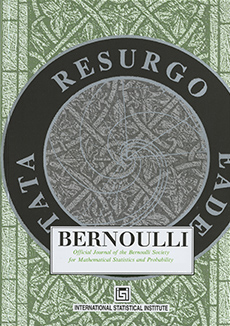Abstract
Randomization tests are based on a re-randomization of existing data to gain data-dependent critical values that lead to exact hypothesis tests under special circumstances. However, it is not always possible to re-randomize data in accordance with the physical randomization from which the data have been obtained. As a consequence, statistical tests typically cannot control the type I error probability if the available sample is not overly large. Still, similarly as the bootstrap, data re-randomization can be used to improve the type I error control. However, in contrast to bootstrap and permutation test theory, a general asymptotic theory under weak null hypotheses has not yet been developed for randomization tests. It is thus the aim of this paper to provide a conveniently applicable theory on the asymptotic validity of randomization tests with test statistics that are asymptotically normal under weak null hypotheses. This can also be used to justify the asymptotic reliability of randomization-based confidence intervals.
To achieve this, the present article creates a link between two well-established fields in mathematical statistics: empirical processes and inference based on randomization via algebraic groups. To this end, a broadly applicable conditional weak convergence theorem is developed for empirical processes that are based on randomized observations. Random elements of an algebraic group are applied to the data vectors from which the randomized version of a statistic is derived. Combining a variant of the functional delta-method with a suitable studentization of the statistic, asymptotically exact hypothesis tests can be deduced, while the finite sample exactness property under group-invariant sub-hypotheses is preserved. The methodology is exemplified with three examples: the Pearson correlation coefficient, a Mann-Whitney effect based on right-censored paired data, and a competing risks analysis. The practical usefulness of the approaches is assessed through simulation studies and an application to data from patients suffering from diabetic retinopathy.
Acknowledgements
The author wishes to thank Hein Putter, Liesbeth de Wreede, and Nan van Geloven for discussions on p and and anonymous referees who helped to improve the quality of this paper.
Citation
Dennis Dobler. "Randomized empirical processes by algebraic groups, and tests for weak null hypotheses." Bernoulli 29 (2) 1109 - 1136, May 2023. https://doi.org/10.3150/22-BEJ1492





